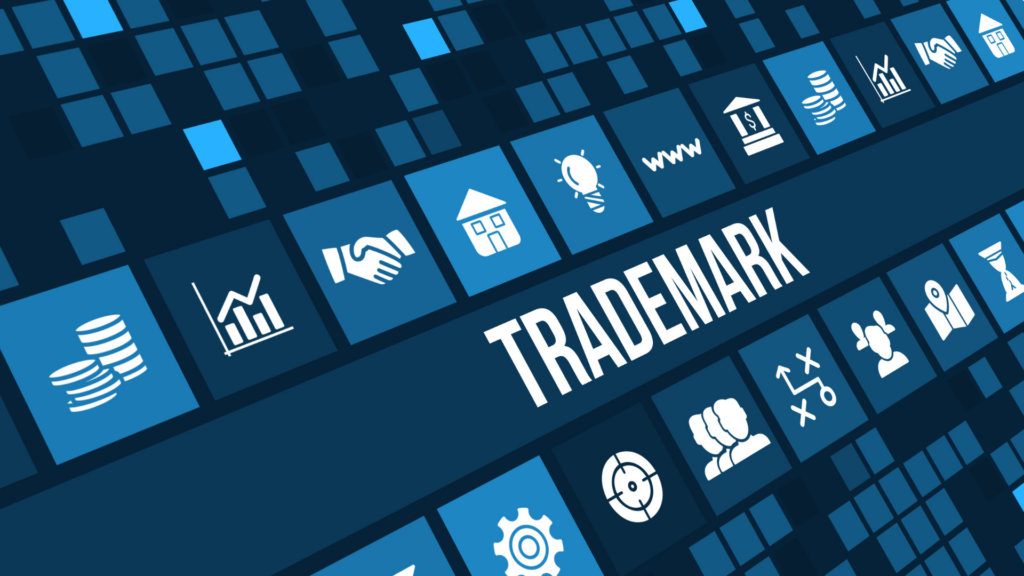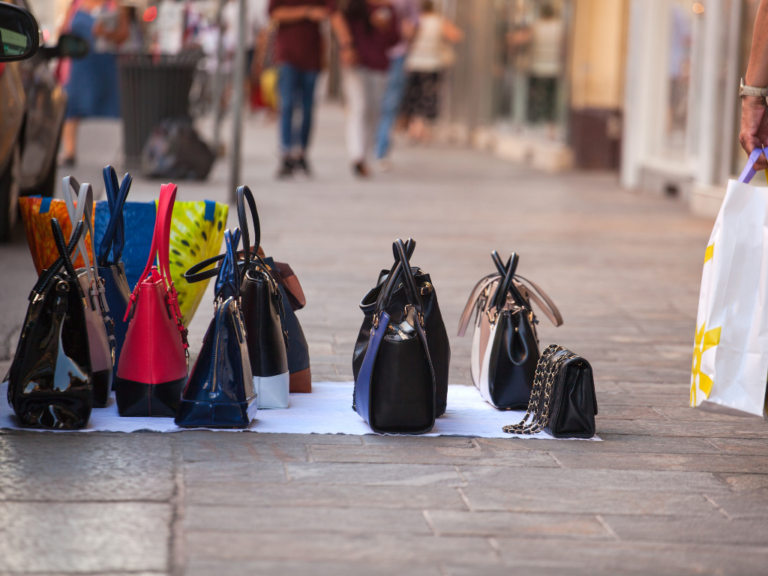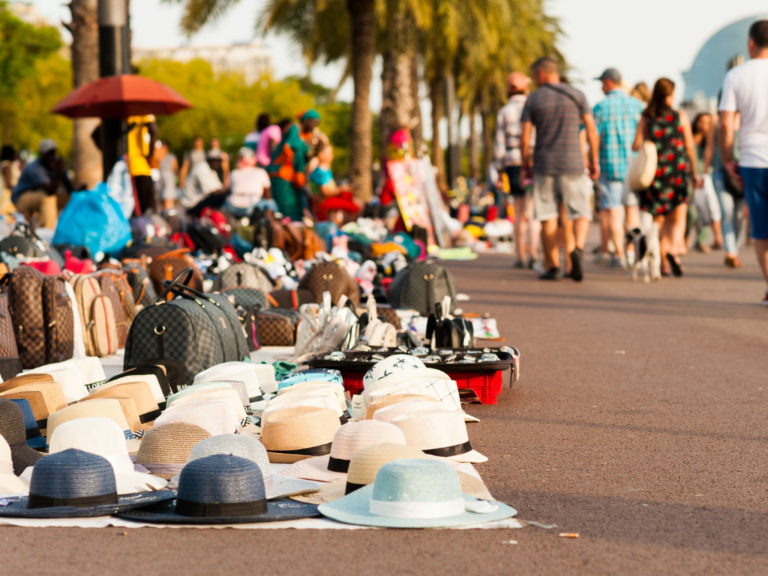Call us now:
How is the Use of a Trademark Without Permission Handled Under Vietnamese Law? The act of using a trademark without permission can lead to serious legal consequences. Organizations or individuals who use a trademark without the consent of the trademark owner may face administrative penalties, civil lawsuits, or criminal liability.

What is Unauthorized Use of Trademarks?
Unauthorized use of a trademark, also known as trademark infringement, refers to the act of an individual or organization using someone else’s trademark without the consent of the trademark owner. This act infringes upon the exclusive rights of the trademark owner, who holds the legal right to use their trademark in connection with the products or services for which it is protected.
Trademark owners have the right to control the use of their trademarks to ensure that they are not misused, which could confuse or mislead consumers. When a third party uses a trademark without permission, it can cause brand dilution, confusion in the market, and harm to the reputation of the trademark owner. Unauthorized use may also result in financial losses, as customers could mistakenly purchase inferior products or services associated with the unauthorized trademark usage.
In many jurisdictions, including Vietnam, the use of a trademark without permission is considered a violation of intellectual property rights and is subject to legal action. Depending on the severity of the infringement, the offending party could face administrative fines, civil lawsuits, or even criminal penalties if the infringement is found to be intentional or on a large scale.
Administrative Penalties for Unauthorized Use of Trademarks
According to the provisions of Articles 11 and 12 of Decree 99/2013/ND-CP issued by the Government of Vietnam, individuals may face fines of up to 250 million VND, while organizations may face fines of up to 500 million VND for engaging in any of the following acts related to intellectual property infringement involving trademarks, trade names, geographical indications, or industrial designs:
1/ Selling: The sale and distribution of products or services that bear marks infringing on the rights of trademarks, trade names, geographical indications, or industrial designs without the consent of the trademark owner is a serious violation.
2/ Advertising: Promoting or introducing products or services that infringe intellectual property rights to attract buyers, even if no transaction occurs, is considered a violation.
3/ Storing for Sale: Storing products that infringe intellectual property rights in a warehouse or any location with the intent to sell them on the market is also considered an infringement and subject to penalties.
4/ Displaying for Sale: Displaying products that infringe on trademarks, geographical indications, or industrial designs in stores, booths, or during exhibitions and trade events is a violation of intellectual property rights.
5/ Transporting: Transporting goods that infringe on intellectual property rights, even if not directly sold, is considered an infringement. However, goods in transit through Vietnam that are not sold within the domestic market are not subject to penalties.
6/ Producing, Manufacturing, or Assembling Infringing Goods: Designing, manufacturing, processing, assembling, packaging, or producing goods that bear marks infringing intellectual property rights is prohibited. This includes all activities that create products that violate rights related to trademarks, geographical indications, trade names, or industrial designs.
7/ Printing, Labeling, or Applying Infringing Marks: Printing, labeling, casting, stamping, or applying infringing marks on products, packaging, labels, or tags in any form is considered a serious violation.
8/ Importing Infringing Goods: Importing goods that violate intellectual property rights relating to trademarks, geographical indications, industrial designs, or trade names without the consent of the trademark owner is an infringement and subject to legal penalties.
Corrective Measures:
- Forcing the removal of infringing elements and destroying such items, such as tags, labels, packaging, or items bearing infringing marks.
- Forcing the destruction of infringing goods and means of infringement if the infringing elements cannot be removed, or if the goods pose a risk to human health, animals, plants, or the environment.
- Forcing the change of the company’s name if the name includes elements that infringe intellectual property rights.
- Forcing the return of any illicit profits gained by individuals or organizations from the infringement, to ensure fairness and prevent exploitation of the infringement for profit.
These provisions aim to protect the rights of trademark owners, trade names, geographical indications, and industrial designs, while contributing to maintaining order and fair competition in the market.
Filing a Lawsuit Against Unauthorized Use of Trademarks
Filing a lawsuit against the unauthorized use of trademarks is a right of the trademark owner when they discover that their intellectual property rights have been infringed. The act of using a trademark without the permission of the owner is a violation of intellectual property law, and the owner can file a lawsuit to protect their rights.
Gathering Evidence
Before filing a lawsuit, the trademark owner needs to clearly identify the infringing actions, including the unauthorized use of their trademark on products, services, or in advertisements. These actions may include:
- Using a trademark that is identical or confusingly similar to the protected trademark of the owner on products or services that are the same or similar, potentially causing confusion.
- Manufacturing, selling, displaying for sale, or transporting goods bearing the infringing trademark.
- Advertising, promoting, or marketing products or services that use the infringing trademark.
- Images and documents proving the unauthorized use of the trademark.
- Sales receipts or contracts related to the sale of the infringing products or services.
- Reports from authorities or inspection results concerning the infringing goods (if applicable).
Sending a Notice of Infringement
Before filing a lawsuit, the trademark owner may send a notice requesting the infringer to cease their unlawful activity. This is an opportunity for the infringer to stop the violation and compensate for damages without going through complex legal procedures. The notice should be in writing and specify:
- The specific infringing action.
- A request to immediately cease the infringement.
- A request for compensation (if applicable).
Filing a Lawsuit in Court
If, after sending the notice, the infringer does not cease the violation or refuses to compensate for damages, the trademark owner has the right to file a lawsuit in the competent People’s Court. The lawsuit procedure includes:
- Preparing the lawsuit petition: The petition must clearly state the claimant’s demands, including cessation of the infringing actions, a public apology, and compensation for damages. Compensation for damages includes direct losses caused by the infringement, such as lost profits, reduced revenue, or costs to rectify the situation, as well as non-material damages if the infringement impacts the trademark owner’s reputation or goodwill.
- Filing the petition: The lawsuit petition, along with evidence of the infringement, must be submitted to the competent People’s Court.
- Litigation procedure: After receiving the petition, the court will accept the case and proceed with legal proceedings according to the civil procedural law.
Applying for Temporary Urgent Measures
During the lawsuit process, the trademark owner may request the court to apply temporary urgent measures to prevent the infringer from continuing to use the trademark. These measures may include:
- Temporarily confiscating infringing goods.
- Preventing the advertising or sale of infringing goods.
- Ordering the suspension of production or business of the infringing products or services.
Filing a lawsuit against the unauthorized use of a trademark is an important legal measure to protect the rights of the trademark owner and ensure fairness and healthy competition in the market.
Criminal Liability for Unauthorized Use of Trademarks
The act of unauthorized use of another person’s trademark can be subject to administrative or civil penalties, and in particularly serious cases, it may also lead to criminal liability. Below are the relevant legal provisions and important aspects related to criminal responsibility for this act:
Relevant Legal Provisions
In Vietnam, the criminal liability for violating industrial property rights, including unauthorized use of a trademark, is regulated in Article 226 of the 2015 Penal Code (amended and supplemented in 2017) regarding the crime of infringing on industrial property rights. Specifically, the act of producing and selling counterfeit goods related to trademarks or geographical indications may be subject to criminal prosecution if the conditions of severity are met.
Elements of the Crime
The act of unauthorized use of a trademark can be prosecuted criminally if it meets the following criteria:
- Commercial nature of the violation: The infringement is committed with the commercial intent, meaning it is done to gain profit or increase revenue by using another’s trademark without permission.
- Large quantity of infringing goods: According to the law, the quantity or value of infringing goods must meet a certain threshold to be subject to criminal liability. Specifically, if the value of the infringing goods is 200 million VND or more, or if the unlawful profit is 100 million VND or more, or if the damage to the trademark owner exceeds 200 million VND, the act may be considered for criminal prosecution.
Penalties and Forms of Punishment
According to Article 226 of the 2015 Penal Code (amended and supplemented in 2017), the penalties for infringing on industrial property rights, including unauthorized use of a trademark, may include:
- Individuals who violate the law may face fines ranging from 50 million VND to 500 million VND, or imprisonment from 6 months to 3 years if the violation meets the elements of the crime outlined above.
- Organizations that violate the law may be fined up to 5 billion VND, or their business activities may be suspended for up to two years. Additionally, they may be prohibited from conducting business, restricted from engaging in certain sectors, or banned from raising capital for a period of one to three years.
Contact Us Now:
DCNH LAW
Address: 38B Tran Nhat Duat, Phuoc Hoa ward, Nha Trang city, Khanh Hoa province, Vietnam.
Phone: (+84) 343320223 – 974278893
Email: dcnh.law@gmail.com


